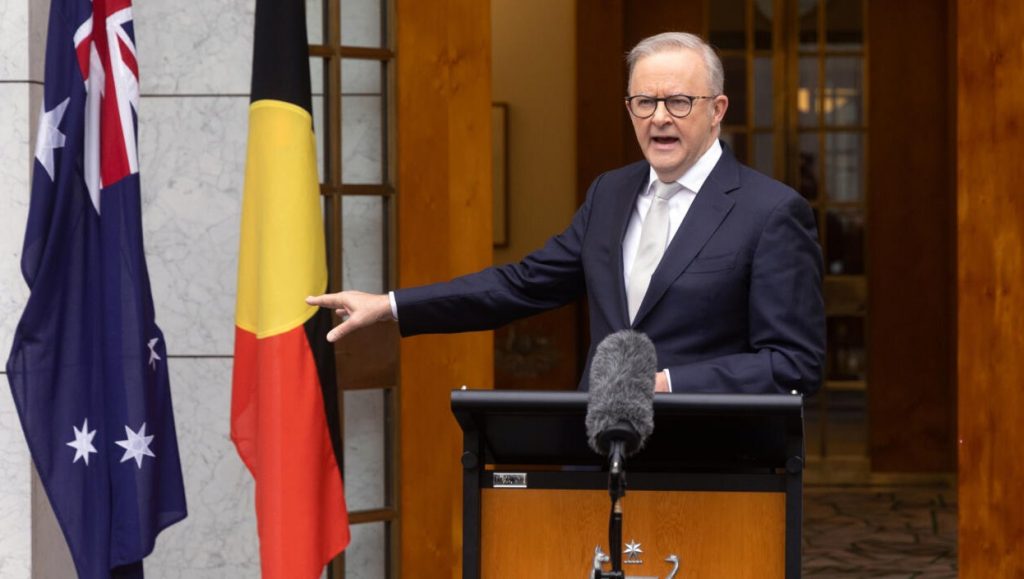Canberra: Australian Prime Minister Anthony Albanese met with Governor-General Sam Mostyn on Friday to dissolve the federal parliament and officially declare a general election set for May 3.
During his visit, Albanese requested that Mostyn initiate the formal election process, which will lead to the election of members for the 48th Parliament of Australia. This announcement kicks off a five-week campaign in which Albanese and his governing Labor Party will compete against Opposition leader Peter Dutton’s Coalition of the Liberal and National parties, according to Xinhua news agency.
At a press conference following his meeting with Mostyn, Albanese emphasized that voters would “choose the way forward” in the upcoming election. He remarked, “We cannot decide the challenges that we will face, but we can determine how we respond,” and underscored the significance of each vote.
Opinion polls suggest that the election is poised to be a competitive race. Earlier this week, the Albanese-led government unveiled its annual budget, aiming to win voter support with unexpected tax cuts and various incentives.
In response, Dutton has criticized Albanese’s leadership as “weak” and accused him of exacerbating inflation through government spending. Dutton’s key proposal involves a $200 billion plan to build seven industrial-scale nuclear reactors, which he argues will slow the advancement of renewable energy.
Economic issues and the rising cost of housing are expected to be central themes in the election. While inflation has decreased under Albanese—falling from 7.8% in 2022 to 2.4% in December—many households continue to grapple with high prices for food, fuel, and utilities. Major cities like Sydney and Melbourne currently rank among the world’s ten least-affordable housing markets, according to the annual Demographia affordability index.
Historically, Australian politics has been shaped by the left-leaning Labor Party and the right-leaning Liberal Party. However, increasing voter dissatisfaction has provided momentum for independent candidates advocating for enhanced transparency and climate action. Polls indicate that ten or more unaligned crossbenchers could potentially hold the balance of power, raising the possibility of a rare minority government.
Both major parties share similar views on defense and national security, committing to a closer military alliance with the United States. However, they have previously diverged in their approaches to China. Albanese has pushed for improved relations with Australia’s key trading partner, culminating in a groundbreaking visit to Beijing in 2023, marking the first by an Australian leader in seven years. In contrast, the preceding Conservative government was highly critical of China, leading to a trade conflict that cost Australia billions until it began to ease late last year.
